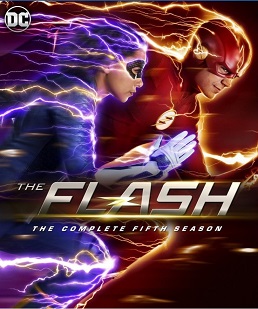Aella is a Reaper, half-human and half-demon. The Reapers are humanity's defenders against the threat of true demon-kind, though their own abyssal heritage makes them feared and distrusted by the people they seek to protect. Many ordinary humans fear the Reapers for their superhuman strength and speed, and propensity for violence.
Aella is a particularly tortured member of her species. When she was a child, her mother sold her to the demon Ganesh in exchange for the gift of eternal life. Aella spent years being savagely tortured by Ganesh and his minions, before finally being rescued by the other Reapers.
Though caught between her two heritages, and scarred by her past, Aella must find new depths of strength and resolve when Ganesh exploits human weaknesses to launch the conquest of her home.
If the above precis sounds like fairly standard urban fantasy novel - half-breed who doesn't fit into either the supernatural or mundane world must become a champion to both - well, you're not far wrong. The basic plot does indeed feel very much like a mash-up of that and Red Sonja; the latter of which has given the film its explicitly sword and sorcery setting and a regrettable amount of sexual-assault-based story beats.
Legend of the Red Reaper appears to have been a true passion project for star (and creator, and director, and co-writer) Tara Cardinal. She apparently spent six years working to secure funding for the film, and worked equally hard to get it a significant distribution partner. This latter quest proved too difficulty even for Aella, though, so the film got an independent release. I salute her dedication, even if I do think the film falls well short of its ambition.
I also salute the production values she managed to achieve. The costumes and make-up work is solid, and the fight choreography and execution is definitely well above the average for an independent production such as this. I'm less a fan of the music, which I found a little bombastic and over the top, but it does at least seem competently composed.
If the above precis sounds like fairly standard urban fantasy novel - half-breed who doesn't fit into either the supernatural or mundane world must become a champion to both - well, you're not far wrong. The basic plot does indeed feel very much like a mash-up of that and Red Sonja; the latter of which has given the film its explicitly sword and sorcery setting and a regrettable amount of sexual-assault-based story beats.
Legend of the Red Reaper appears to have been a true passion project for star (and creator, and director, and co-writer) Tara Cardinal. She apparently spent six years working to secure funding for the film, and worked equally hard to get it a significant distribution partner. This latter quest proved too difficulty even for Aella, though, so the film got an independent release. I salute her dedication, even if I do think the film falls well short of its ambition.
I also salute the production values she managed to achieve. The costumes and make-up work is solid, and the fight choreography and execution is definitely well above the average for an independent production such as this. I'm less a fan of the music, which I found a little bombastic and over the top, but it does at least seem competently composed.
Probably the only technical production aspect where I feel there is a notable flaw is in the acting. Most performances I'd call 'adequate', but there's not really anyone delivering much better than that, and there are a few notable exceptions who fall well short.
The movie's primary failing, alas, is its script. The dialogue tends to be rather purple and overwrought, which I suspect probably makes it harder for the cast to deliver convincingly and well. Also, the film has uneven pace and structure. In particular, it tends to dwell over-long on scenes, trying to make them seem epic and portentous. Perhaps with defter writing, the film might have pulled this off. Unfortunately, I found the execution rather heavy-handed and overly methodical. Scenes tended to drag on past the point where their purpose had been achieved, leading me to sometimes feel impatient with them.
The movie's primary failing, alas, is its script. The dialogue tends to be rather purple and overwrought, which I suspect probably makes it harder for the cast to deliver convincingly and well. Also, the film has uneven pace and structure. In particular, it tends to dwell over-long on scenes, trying to make them seem epic and portentous. Perhaps with defter writing, the film might have pulled this off. Unfortunately, I found the execution rather heavy-handed and overly methodical. Scenes tended to drag on past the point where their purpose had been achieved, leading me to sometimes feel impatient with them.
I wonder if Ms Cardinal's passion for this project was a factor in these flaws. Often, writers need to be tough and cut stuff they love - I don't think this happened here.








